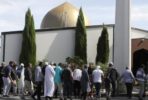NON-MUSLIMS are against Islamic criminal law amendments as they perceive them as another step towards the Islamisation of Malaysia, Attorney-General Mohamed Apandi Ali candidly told The Malaysian Insight yesterday.
It does not help either that the Syariah Courts (Criminal Jurisdiction) Act 1965 (or better known by its Bahasa Malaysia acronym, RUU 355) Bill was mooted by PAS president Abdul Hadi Awang, the propagator of hudud laws in Kelantan in the 1990s, with Terengganu following suit later.
Wading into the issue after Barisan Nasional decided not to table Hadi’s private member’s bill in line with the principle of consensus, Apandi said this issue was always going to be a problem.
“When Hadi introduced this bill and tried to incorporate the 100 lashes and other severe punishment, the perception of non-Muslims was that hudud is coming, in the guise of the private member’s bill.”
In fact, Apandi said, RUU 355 was simply to amend the existing Syariah Criminal Law Act to enhance punishments.
It was also to give Muslims a sense of “feeling good”, as the shariah court currently is even lower than the powers of the magistrate’s court. RUU 355 was to have increased the power of the shariah court to the position of a Sessions Court.
“They (non-Muslims), however, read it as the beginning of an Islamic state government like the ones in Iran, Iraq and Syria, despite being told it was not applicable to non-Muslims. That is why the strong resistance.”
On a personal note, Apandi is relieved that the ruling federal coalition had made a U-turn on RUU 355, as that meant he would not have to draft the amendments to Hadi’s bill, which he felt would have been opposed anyway.
“When we draft, we have to show that it is a government bill, so in the first place, my office will have to make sure that it is different from Hadi’s draft.
“So maybe, just maybe, we may exclude Sabah (and Sarawak), to make it different, and even reduce the sentences.
“On the number of strokes, and even the sentences, I would have probably reduced them.
“The difference from the current laws which the Syariah Court Criminal Jurisdiction covers, imprisonment is only up to three years. They want to change it to 30 years, such a big disparity.
“As for fines, currently it is RM1,000, they want to increase it to RM100,000. The disparity is so big. People are going to start questioning the logic behind this.
“So that is why the perception by the people outside will be ‘Oh, this is definitely going to be hudud’.”
Apandi also said he had mentioned the matter to BN politicians and they have indicated their concerns to him.
Many had said it would be difficult for them to explain to their supporters if the government had adopted Hadi’s bill.
They had also warned that BN could lose seats, especially in Sarawak and Sabah, if the government did not make that RUU 355 U-turn.
Apandi also feels RUU 355 was more political than legal.
“The purpose and intention of this is to reap political mileage. Have you heard anybody from the public clamouring for increase of powers of the shariah court? No, nobody asking is asking for it, isn’t it?
“To my reading, it is mainly political. He (Hadi) has to satisfy the states that have already established hudud laws.
“People in those states are beginning to question him: ‘Hey, we have the law, why can’t we enforce them? What’s happened?’ He needs to say something to these states. And that is why he is trying to get federal support.
“So, yes… it’s political!”
Source: www.themalaysianinsight.com







